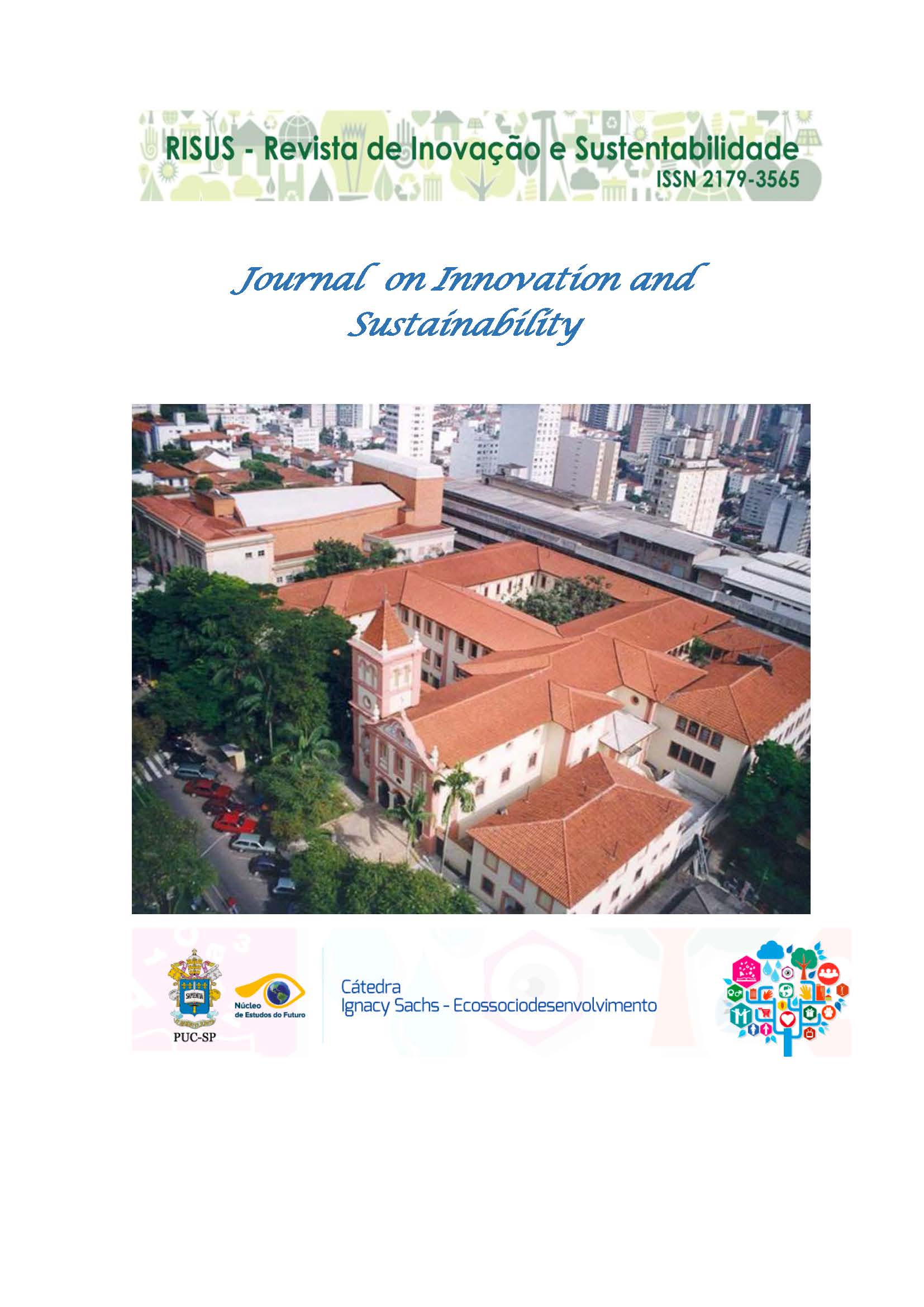Corruption and firm performance
evidence from pakistani enterprises
DOI:
https://doi.org/10.23925/2179-3565.2021v13i3p176-189Palabras clave:
corruption, bribe, firm performance, bureaucratic complexities, PakistanResumen
Corruption is a curse in Pakistan, neither public office nor any structure immune from this phenomenon. Inspired by this, the study commits to examine two significant research issues. First the study assesses to find whether corruption greases the wheel or sanding it. Second, the study commits to determine what causes corruption in firms. This study is based on the World Bank's enterprise survey, data of Pakistani firms. This study tries to associate the effects of corruption on firm performance after controlling for firm specific factors. We check two sets of variables; first set is the variables that cover firm specific characteristics and other is variable that cover intervention with government agencies. The overall conclusion depicts a mixed approach on corruption effects. Our evidence shows that there is a negative association of corruption on firm performance which supports that the hypothesis of ‘sand the wheels’ is widely applicable in Pakistan. The results conclude that younger firms, directly exporting firms, large size firms are more likely to experience a deteriorating effect on their performance. Our study interestingly shows that bureaucratic complexities faced by the firms increases the performance of the firms which supports ‘Grease the wheels’. Study finds that firms struggling in terms of sales growth, younger firms, firms in growing competition, large firms are more likely to pay bribes.
Citas
Ades, A. and R. Di Tella (1999). "Rents, competition, and corruption." American economic review 89(4): 982-993.
Agostino, M., et al. (2011). "The value relevance of IFRS in the European banking industry." Review of quantitative finance and accounting 36(3): 437-457.
Aidt, T., et al. (2008). "Governance regimes, corruption and growth: Theory and evidence." Journal of comparative economics 36(2): 195-220.
Alexeev, M. and Y. Song (2013). "Corruption and product market competition: An empirical investigation." Journal of Development Economics 103: 154-166.
Asiedu, E. and J. Freeman (2009). "The effect of corruption on investment growth: Evidence from firms in Latin America, Sub‐Saharan Africa, and transition countries." Review of Development Economics 13(2): 200-214.
Bayley, D. H. (1966). "The effects of corruption in a developing nation." Western political quarterly 19(4): 719-732.
Beck, P. J. and M. W. Maher (1986). "A comparison of bribery and bidding in thin markets." Economics letters 20(1): 1-5.
Bliss, C. and R. D. Tella (1997). "Does competition kill corruption?" Journal of political economy 105(5): 1001-1023.
Brunetti, A. and B. Weder (1998). "Investment and institutional uncertainty: a comparative study of different uncertainty measures." Weltwirtschaftliches Archiv 134(3): 513-533.
Campos, N. F., et al. (2010). "Corruption as a barrier to entry: Theory and evidence."
Cuervo, A. and B. Villalonga (2000). "Explaining the variance in the performance effects of privatization." Academy of management review 25(3): 581-590.
Dutta, I. and A. Mishra (2004). "Centre for Development Economics."
Emerson, P. M. (2006). "Corruption, competition and democracy." Journal of Development Economics 81(1): 193-212.
Fisman, R. and J. Svensson (2007). "Are corruption and taxation really harmful to growth? Firm level evidence." Journal of Development Economics 83(1): 63-75.
Gaviria, A. (2002). "Assessing the effects of corruption and crime on firm performance: Evidence from Latin America." Emerging Markets Review 3(3): 245-268.
Grossman, S. J. and O. D. Hart (1983). "Implicit contracts under asymmetric information." The quarterly journal of economics: 123-156.
Huntington, S. (1968). "Political order in changing societies New Haven: Yale U." Political Order in Changing Societies.
Jensen, M. C. and W. H. Meckling (1976). "Theory of the firm: Managerial behavior, agency costs and ownership structure." Journal of financial economics 3(4): 305-360.
Kaufmann, D. and S.-J. Wei (2000). Does “grease money” speed up the wheels of commerce? International Monetary Fund, Working Paper No. 00/64. www. worldbank. org/wbi/governance/pdf/grease. pdf ….
Krueger, A. O. (1974). "The political economy of the rent-seeking society." The American economic review 64(3): 291-303.
Leff, N. H. (1964). "Economic development through bureaucratic corruption." American behavioral scientist 8(3): 8-14.
Leys, C. (1965). "What is the Problem about Corruption?" The Journal of Modern African Studies 3(2): 215-230.
Lien, D.-H. D. (1986). "A note on competitive bribery games." Economics letters 22(4): 337-341.
Mauro, P. (1995). "Corruption and growth." The quarterly journal of economics 110(3): 681-712.
McArthur, J. and F. Teal (2002). Corruption and firm performance in Africa, University of Oxford Oxford.
Méndez, F. and F. Sepúlveda (2006). "Corruption, growth and political regimes: Cross country evidence." European Journal of political economy 22(1): 82-98.
Méon, P.-G. and K. Sekkat (2005). "Does corruption grease or sand the wheels of growth?" Public choice 122(1): 69-97.
Mo, P. H. (2001). "Corruption and economic growth." Journal of comparative economics 29(1): 66-79.
Nguyen, T. T. and M. A. Van Dijk (2012). "Corruption, growth, and governance: Private vs. state-owned firms in Vietnam." Journal of Banking & Finance 36(11): 2935-2948.
Nguyen, T. V., et al. (2006). "Trust and uncertainty: A study of bank lending to private SMEs in Vietnam." Asia Pacific Business Review 12(4): 547-568.
Sahakyan, N. and K. W. Stiegert (2012). "Corruption and firm performance." Eastern European Economics 50(6): 5-27.
Schiffer, M. and B. Weder di Mauro (2001). Firm size and the business environment, The World Bank; International Finance Corporation.
Shleifer, A. and R. W. Vishny (1993). "Corruption." The quarterly journal of economics 108(3): 599-617.
Sklar, R. L. (1969). Political Order in Changing Societies, JSTOR.
Svensson, J. (2003). "Who must pay bribes and how much? Evidence from a cross section of firms." The quarterly journal of economics 118(1): 207-230.

Descargas
Publicado
Número
Sección
Licencia
This Journal is licensed under a Creative Commons Attribution-Non Commercial-No Derivers 4.0 International license.
1.The author (s) authorize the publication of the article in the journal;
2.The author (s) warrant that the contribution is original and unpublished and is not in the process of being evaluated in other journal (s);
3. The journal is not responsible for the opinions, ideas and concepts emitted in the texts, as they are the sole responsibility of its author (s);
4. The editors are entitled to make textual adjustments and to adapt the articles to the standards of publication.

